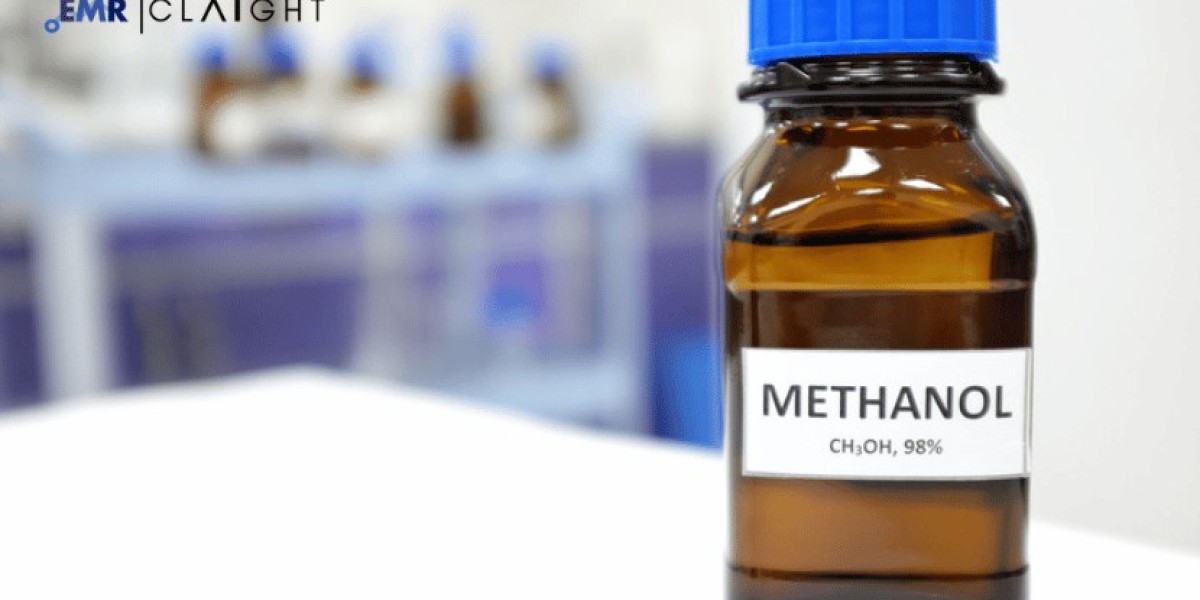Methanol is a crucial industrial chemical used in various applications, including formaldehyde, fuel, antifreeze, and plastics. It serves as a fundamental building block for many industries, particularly in the production of olefins, biodiesel, and synthetic fuels. The increasing shift toward sustainable energy and fuel alternatives is further driving methanol’s market expansion.
The global formaldehyde market stood at a volume of 22,780 KT in 2023 and is projected to grow at a CAGR of 3.40% between 2025 and 2034, reaching approximately 30,510 KT by 2032. Similarly, the methanol market is poised for steady growth, driven by advancements in renewable methanol technology and demand in chemical and energy industries.
Market Overview
Global Market Size and Growth Forecast
The global methanol market was valued at approximately USD 40.5 billion in 2023 and is projected to reach USD 61.2 billion by 2032, growing at a CAGR of 4.8%. Key factors contributing to this growth include:
- Expanding use of methanol in fuel applications, including marine and automotive sectors.
- Increasing demand for methanol-to-olefins (MTO) technology in plastics and polymers.
- Sustainability-driven initiatives, pushing for bio-methanol and green methanol solutions.
Get a Free Sample Report with Table of Contents@ https://www.expertmarketresearch.com/industry-statistics/methanol-market/requestsample
Key Market Drivers
1. Rising Demand for Methanol as a Clean Fuel Alternative
- Marine and Automotive Sectors: Methanol is emerging as a low-carbon alternative in marine fuel due to its lower sulfur content compared to traditional fuels.
- Methanol-to-Gasoline (MTG) and Biodiesel Production: Methanol serves as a key feedstock in synthetic fuels and blended gasoline solutions, reducing dependence on crude oil.
- Renewable Methanol Initiatives: Governments and industries are investing in green methanol production, derived from CO₂ capture and biomass.
2. Growth in the Chemical and Petrochemical Sectors
- Formaldehyde Production: Approximately 40% of methanol demand is driven by formaldehyde manufacturing, which is essential for resins, coatings, and adhesives.
- Methanol-to-Olefins (MTO) Technology: This technology is gaining traction in ethylene and propylene production, key precursors for plastics and synthetic rubbers.
- Acetic Acid and Methyl Tertiary Butyl Ether (MTBE): Methanol is widely used in solvents, adhesives, and octane-boosting fuel additives.
3. Advancements in Sustainable Methanol Production
- Bio-Based and Green Methanol: Companies are shifting toward methanol from renewable sources, such as waste biomass and carbon capture.
- Carbon-Neutral and Low-Emission Processes: Innovations in methanol synthesis from CO₂ emissions are reducing the environmental impact.
- Circular Economy Initiatives: Recycling methanol waste and utilizing waste-to-methanol technology are gaining momentum.
Challenges in the Methanol Market
1. Volatility in Raw Material Prices
- Dependence on Natural Gas and Coal: Methanol production heavily relies on natural gas reforming and coal gasification, making it susceptible to energy price fluctuations.
- Geopolitical Uncertainties: Trade restrictions and disruptions in major methanol-producing regions, such as China, the U.S., and the Middle East, impact supply stability.
2. Environmental and Regulatory Challenges
- CO₂ Emissions from Traditional Methanol Production: Conventional methods contribute significantly to carbon emissions, prompting regulations favoring cleaner alternatives.
- Emission Control and Sustainability Compliance: Governments worldwide are tightening regulations on methanol’s environmental footprint, pushing for cleaner production methods.
Regional Analysis
1. North America
- Strong Market for Methanol in Chemical Production and Energy Applications
- Investment in Sustainable and Bio-Based Methanol Solutions
- Key Players: Methanex Corporation, Celanese Corporation, Eastman Chemical
2. Europe
- Tough Environmental Regulations Pushing for Green Methanol
- Growing Use in Sustainable Aviation Fuel (SAF) and Automotive Blends
- Major Markets: Germany, UK, France, Netherlands
3. Asia-Pacific
- Largest Methanol Producer and Consumer Region
- Expanding Demand for MTO and MTG Technologies
- Key Players: China, India, South Korea, Japan
4. Latin America & Middle East
- Rising Investments in Methanol Production and Fuel Blending
- Infrastructure Growth Boosting Demand for Methanol in Industrial Applications
- Key Markets: Brazil, Mexico, UAE, Saudi Arabia
Technological Innovations in Methanol Production
1. Green Methanol and Bio-Methanol Developments
- Renewable methanol production from captured CO₂ and hydrogen electrolysis.
- Biomass-to-methanol conversion for carbon-neutral industrial use.
2. Energy-Efficient Methanol Production Methods
- Catalytic advancements improving methanol yield from syngas.
- Integration of carbon capture and storage (CCS) in traditional methanol plants.
3. AI and Smart Manufacturing in Methanol Plants
- Predictive maintenance using AI for process optimization and waste reduction.
- Automation and real-time monitoring to enhance energy efficiency.
Future Outlook and Investment Opportunities
1. Expansion of Green Methanol Market
- Regulatory incentives for renewable methanol production and carbon credit schemes.
- Growing partnerships between energy firms and chemical manufacturers to advance bio-methanol technologies.
2. Emerging Markets and Industrial Expansion
- Rapid industrialization in Asia-Pacific and Latin America creating lucrative opportunities.
- New methanol applications in fuel cells and hydrogen storage gaining traction.
3. Methanol in High-Value Sectors
- Development of methanol-based hydrogen fuel cells for clean energy.
- Expanding applications in aerospace, pharmaceuticals, and high-performance materials.
Conclusion
The methanol market is on a strong growth trajectory, driven by its role in energy, chemicals, and sustainable fuel alternatives. While challenges such as raw material price volatility and environmental concerns persist, technological advancements and green methanol initiatives are opening new doors.
Companies investing in low-carbon methanol, bio-based solutions, and smart manufacturing will be at the forefront of market leadership. As industries pivot toward carbon-neutral and circular economy models, methanol is set to play a pivotal role in the global transition to sustainable energy and chemicals.








